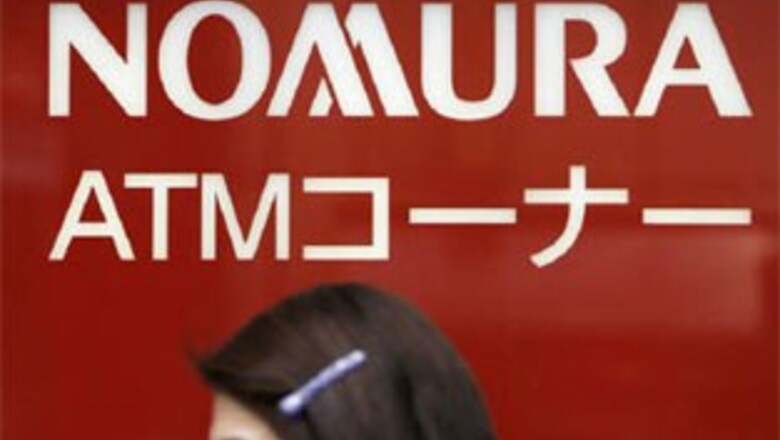
views
MD-Equity Research and Senior Political Analyst, Nomura International, Alastair Newton said the markets have largely discounted a Third Front government. "A Third Front government would be uncertain for markets. The markets want to see a reasonably stable coalition without the Left. We think the Congress may form the government as it has redoubtable coalition skills. We also expect structural reforms with the Bharatiya Janta Party (BJP), Congress in power without the Left."
He expects a multi-party coalition government emerging by June 2. "We see a plethora of parties in the new government, so coalition formation will be difficult."
According to Newton, external factors are likely to weigh on sentiment, not elections.
Newton expects 7 per cent GDP growth for India next year and sees 10 per cent growth over next decade if structural reforms continue.
Here is a verbatim transcript of the interview with Alastair Newton on CNBC TV-18.
Q: Do you think there is still a possibility of negative outcome on Saturday or you would rule out any unknown elements coming into the picture anything other than the United Progressive Alliance (UPA) or National Democratic Alliance (NDA)?
A: I think concerns would be too strong a word in many respects. As I said when I was talking to your viewers when I was in Mumbai a few weeks ago, this is a really difficult election to call. What we do expect to see is a plethora of parties in the new Lok Sabha, forming the coalition after the count is being completed is not going to be straight forward. We would expect to see a multi-party coalition government emerging by the second of June, however.
Q: Is there any room for surprise in Saturday's outcome, or do you think it will be one of the two big known factions?
A: The unknown entity I take we are referring to the so called third front. By and large, though that possibility has attracted a lot of interest in the press, I think markets have more or less discounted it. We would put no more than a 15 per cent probability of that, always being more cautious about these numbers, because of electoral uncertainty.
What markets really want to see is a reasonably stable coalition, preferably one which does not have any involvement in the communist party which is seen as block on structural reform. When I look back at 2004 of course, first of all, a lot of us got the election result wrong, so there is a word of caution for us; secondly, there was a widespread view that the incoming government would not last the full five years. Now the Indian National Congress (INC) has proved us wrong and survived the full five years. So I think markets will be cautious initially, but a reasonably stable government not beholden to the communist party would be a good result from a market perspective.
Q: How high an importance rate would you give geo-political issues for this entire election and where does India fit in right now for people who are watching the globe generally in developments?
A: When I look at India in the global context, I have to say what we have seen in markets there has been largely a consequence of what is going on outside India, in wider global economy rather than internal India factors. That is not to say that the electoral uncertainty has not added to that a little. And we can't discount events going on in Pakistan, at present ongoing events and ofcourse sadly the impact on markets of the Mumbai bombings at the end of last year although I would say that that has tended to be marginalized of late. Nevertheless, the shadow of Pakistan is still there.
PAGE_BREAK
Q: There is an expectation that a) particular combination would impact the economy more or less than the others- what is Nomura's view right now on growth in India?
A: Difficult to say about markets at the moment. We are looking to India for 7 per cent GDP growth next year which is very respectable indeed. Our longer-term call remains we believe with further structural reforms, which we hope to, see after general elections when the new government comes in to power. India can get to around 10 per cent growth per annum over the course of the next decade. Clearly we are looking at a little below that at that at the moment, want to stress that there is a lot of external circumstances playing into that at the moment.
As far as markets are concerned, we remain overweight emerging markets globally on average, with a leaning towards Asia among the emerging market community. Much of that revolves around the China story and South-East Asia but India is clearly a factor in there. Let's keep in mind Indo-China economic relations in trade have been growing at a considerable rate over the course of this decade so far, and we expect that trend to continue and that also would be a positive for India and Indian markets going forward.
Q: In terms of a set back though from the election outcome- what would qualify as that for the market?
A: I would say very little at this stage. If we saw a result which we are not anticipating, which would be either a Third Front government emerging, or if for whatever reason it became clear that a majority government was going to be difficult to form by June 2, that would lead to some additional market uncertainties. But right now it does seem to me that bigger factors outside of the Indian elections are bearing more heavily on markets, not least what we are seeing in the global economy and the efforts of policy community to get us, I wouldn't say out of this crisis immediately but there is a sense that we may be at the end of the beginning of this crisis and maybe turn the corner globally in stock markets.
Q: From the trends you have been analyzing over the past few months – to your mind what looks like the most likely outcome when we step into results and reactions on Monday morning?
A: Well our main case is we expect on balance that the most likely scenario going forward is that Sonia Gandhi's redoubtable coalition negotiating skills will enable INC to form a new government which will have a majority. Sadly we think it's more likely that that is going to beholden on the communist than not the case.
That is our core going forward. On that basis we are cautious about structural reforms. If we were to see either a BJP government or a Congress government that did not have communist, we would be more forward. On that basis we are cautious on structural reform. If we were to see either a BJP government or a Congress government which did not involve the communist then I think we will be more positive about prospects for structural reform and we would expect to see that reflected both in India's economic prospects and in market sentiment.




















Comments
0 comment